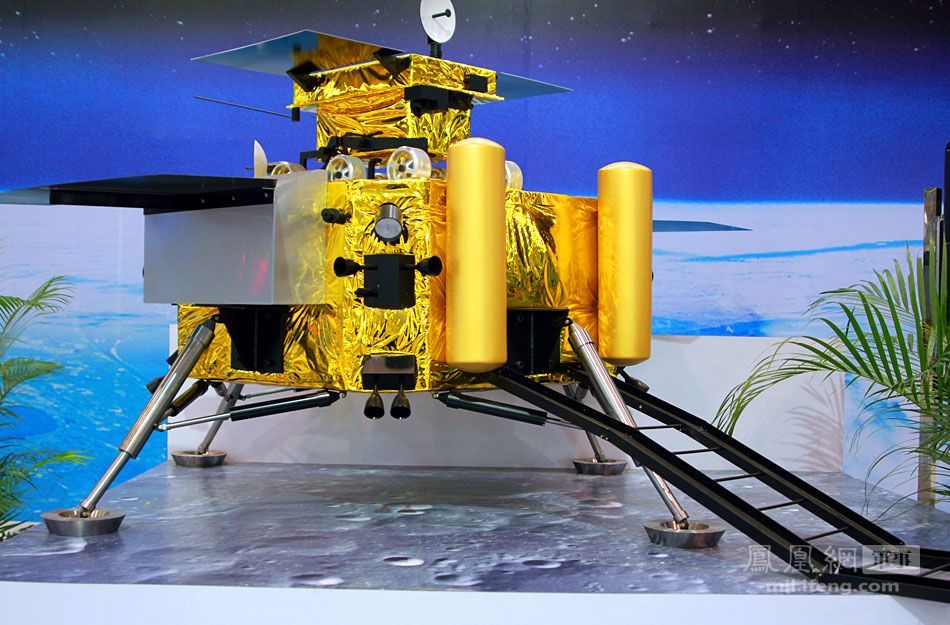China's moon rover to use domestic nuclear battery
 0 Comment(s)
0 Comment(s) Print
Print E-mail China.org.cn, August 13, 2012
E-mail China.org.cn, August 13, 2012
 |
|
China's moon rover is seen in a Zhuhai aviation and aerospace exhibition. [File photo] |
A lunar night lasts for 14 days with temperatures reaching below minus 100 degrees Celsius. The battery will be the only source of energy during that time and will prevent the equipment from freezing. An expandable solar panel will absorb the sun's energy during the day.
Chang'e-3 will be launched at the Xichang Satellite Launch Center in southwest China's Sichuan province in 2013.
China launched Chang'e-1 in 2007 and Chang'e-2 in 2010. The first probe retrieved a great deal of scientific data and a complete map of the moon while the second created a full higher-resolution map of the moon.
Ouyang said the rover and the Chang'e-3 would stay on the moon until the Chang'e-5 probe arrived to take samples and the rover back to the Earth.
He said China was currently working on the Chang'e-5 as well as a new Long March-5 rocket to carry the probe.






Go to Forum >>0 Comment(s)